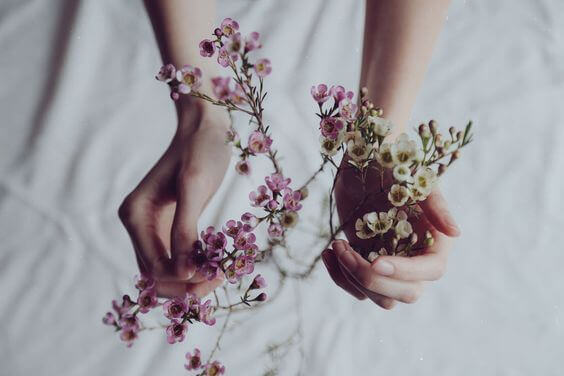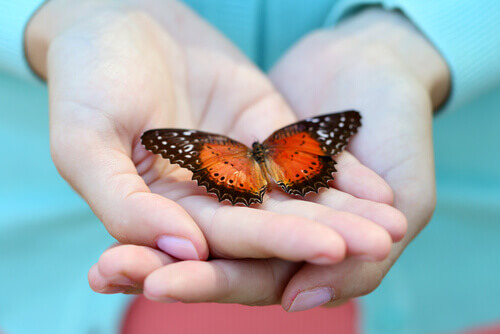How to Enrich Your Way of Giving Thanks to Others

Would you like to give a gift to the people around you that’d completely change your life? A gift you give with a genuine smile. Even better, it doesn’t cost you anything. It’s the gift of saying thank you.
“Thank the flame for its light, but do not forget the lampholder standing in the shade with the constancy of patience.”
-Rabindranath Tagore-
The best way of giving thanks

Do you think you’re a grateful person? Think again. As a matter of fact, we could all be a little more grateful in our lives. Here are six tips to help you.
- Be specific. Don’t just say “Thank you”. Explain why you’re saying it. For example, instead of saying, “Thanks for your work” it’d be more effective to say something like “Thanks for staying so late to finish your work” or “Thanks for checking those results so thoroughly.”
- Be personal. When it comes to working in a team, make sure you thank each member separately.
“Anything you do not give freely and abundantly becomes lost to you.”
-Seneca-
- Listen. It’s likely that whoever you’re thanking will also want to talk about how they’ve helped you. For example, they may want to explain what was the hardest and what was the easiest thing for them to do for you.
- If you can, make it public. They probably can’t put on their CV how they helped you, but if you make it public, it’ll make them feel validated. In fact, they’ll feel responsible and consider themselves as someone who can be counted upon.
- It opens up the possibility of reciprocity. You owe them a favor and, even if they’re not going to call in the debt, you should acknowledge the fact.
- Use non-verbal language. Take a quiet moment and look them in the eye to give your thanks. Messages, emails, or phone calls simply aren’t personal enough.
The difference between giving thanks and being grateful
It’s important to emphasize that giving thanks doesn’t necessarily imply that you’re grateful. In fact, giving thanks is a social convention. It can often manifest itself as a spontaneous and automatic response.
Indeed, many expressions of thanks sound hypocritical. As soon as you hear them you know that there’s no real gratitude there. Naturally, you must avoid expressing yourself in this way at all costs.
Showing appreciation goes beyond words. Being grateful consists, among other things, of showing others that you really value and appreciate what they’ve done for you, or what they’ve given you. In these cases, conventional methods often don’t help.
As a matter of fact, with the well-worn expression of “thank you,” you might not ever really achieve much. That’s because its automatic use has robbed it of its true meaning. Therefore, you need to find new ways to demonstrate your feelings of genuine gratitude.
When you show your gratitude to others, it’s the little details that matter. However, what’s the best way of demonstrating your feelings of gratitude?
As a matter of fact, you might find you say “thank you” all the time without really meaning it. Therefore, think about someone who’s recently done something really important for you. Then, find a creative way to show them how grateful you are. Do it for them, but also for you. Because thanking is often as rewarding as receiving.
Why be more grateful?
Being grateful will make you and those around you feel better. It’s a small gesture but it helps to strengthen the ties between you.
1. You can make a difference
Adopt the habit of taking life more slowly and appreciating how different people around you bring positive things into your life. This is the best way to create strong ties. Indeed, by acknowledging their support you’re expressing your sincere gratitude.
Relationships are the most enriching way to achieve personal growth. You appreciate those who value you. This makes it easier for you to open your hearts to them.
2. Open up to new experiences
Understand and be aware that being grateful will improve your life. Because, by thanking others, you’re acknowledging and showing them you value what they’ve given you. Therefore, they’ll understand that what they did, however small it may seem, was important and positive.
This happens because the messages that you transmit to them about their actions let them know what you think of them. Thus, a thank you is similar to saying “Well done!”
“Let us be grateful to the people who make us happy, they are the charming gardeners who make our souls blossom.”
-Marcel Proust-
With a simple gesture, you have the possibility of reinforcing the self-esteem of the person who’s done you the favor. On the other hand, from a somewhat more egotistical point of view, when you give thanks to another, they usually increase their willingness to repeat the favor again in the future or to help you in another way.
3. Create a positive domino effect and reward yourself

Talk to your family, friends, and colleagues to let them know how important they are to you. This creates a domino effect with which you can spread your positive attitude to others.
Reward yourself. Give yourself a treat for having done your ‘homework’ well. Thank yourself for what you’ve done and how you are. This’ll bring you happiness.
What do you think you could do to honor both yourself and your loved ones? Do you think that you could be self-sufficient enough to create your own happiness?
Now that you’re aware of what such a simple gesture entails and the number of benefits it has, there’s no reason not to thank others for what they’ve done for you. Remember, there’s always someone who’s wanted to please you without asking for anything in return. Without a doubt, they deserve to be valued. Therefore, be grateful and lead by example by giving them the universal present of genuine thanks.
All cited sources were thoroughly reviewed by our team to ensure their quality, reliability, currency, and validity. The bibliography of this article was considered reliable and of academic or scientific accuracy.
- Algoe, S. B., Fredrickson, B. L., & Gable, S. L. (2013). The social functions of the emotion of gratitude via expression. Emotion, 13(4), 605.
- Algoe, S. B., Gable, S. L., & Maisel, N. C. (2010). It’s the little things: Everyday gratitude as a booster shot for romantic relationships. Personal relationships, 17(2), 217-233.
- Bartlett, M. Y., & DeSteno, D. (2006). Gratitude and prosocial behavior: Helping when it costs you. Psychological science, 17(4), 319-325.
- Kelly, J. D. (2016). Your best life: breaking the cycle: the power of gratitude. Clinical Orthopaedics and Related Research, 474(12), 2594-2597. https://www.ncbi.nlm.nih.gov/pmc/articles/PMC5085955/
- Sansone, R. A., & Sansone, L. A. (2010). Gratitude and well being: the benefits of appreciation. Psychiatry (Edgmont), 7(11), 18. https://www.ncbi.nlm.nih.gov/pmc/articles/PMC3010965/
- Seligman, M. E. (2016). Florecer: La nueva psicología positiva y la búsqueda del bienestar. Océano exprés.
- Sun, P., Sun, Y., Jiang, H., Jia, R., & Li, Z. (2020). Gratitude as a protective factor against anxiety and depression among Chinese adolescents: The mediating role of coping flexibility. Asian Journal of Social Psychology, 23(4), 447-456.
- Wood, A. M., Joseph, S., Lloyd, J., & Atkins, S. (2009). Gratitude influences sleep through the mechanism of pre-sleep cognitions. Journal of psychosomatic research, 66(1), 43-48.
This text is provided for informational purposes only and does not replace consultation with a professional. If in doubt, consult your specialist.








